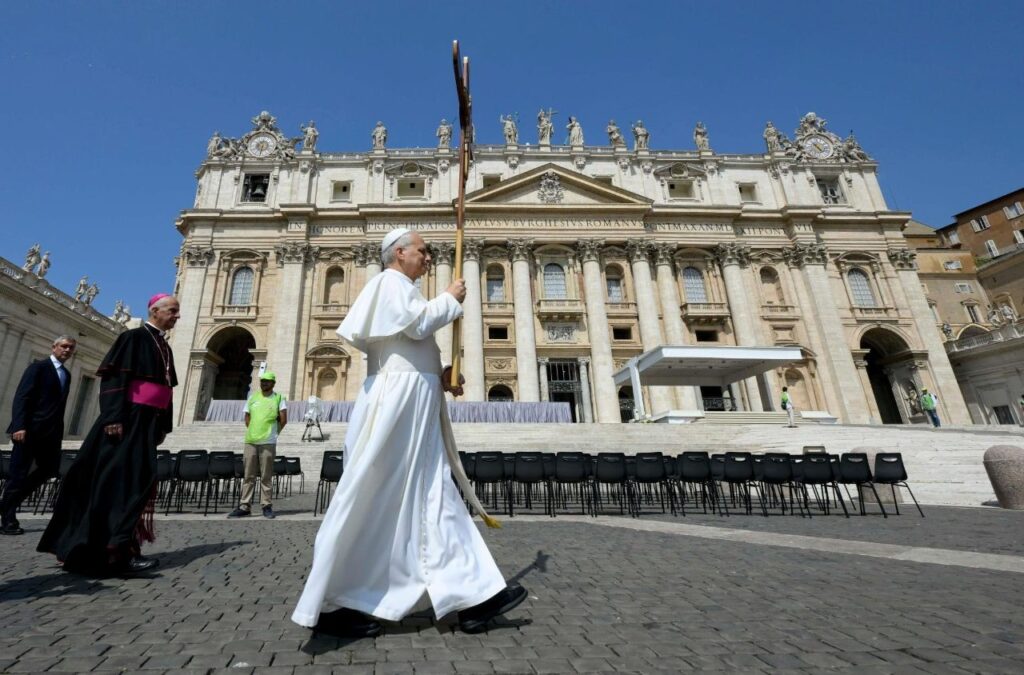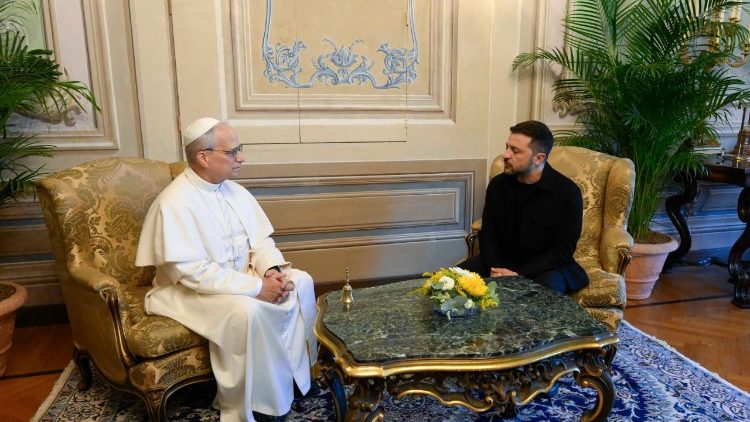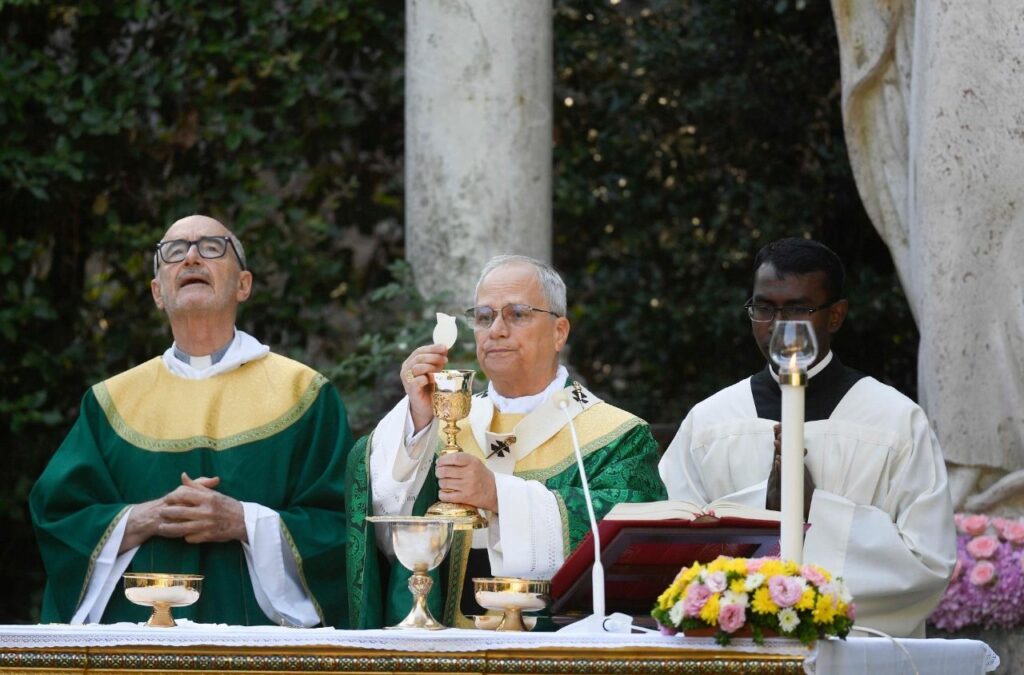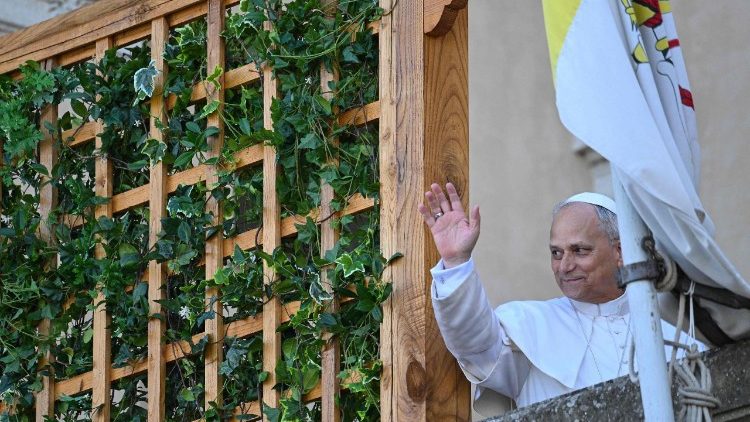Pope Makes Appeal for Clean Water
Video-Message that the Cardinal Secretary of State, Pietro Parolin, sent on behalf of the Holy Father Francis

Pope Francies on March 22, 2020, made an appeal for the importance of clean water in a video message presented by Cardinal Secretary of State, Pietro Parolin, and sent to the Director-General of FAO (the United Nations Food and Agriculture Organization), H.E. Mr. Qu Dongyu, and the Directress General of UNESCO (United Nations Educational, Scientific and Cultural Organization) H.E. Mrs. Audrey Azoulay, and to the participants in the virtual event taking place on the occasion of World Water Day 2021, being held today, March 22 on the theme “Valuing Water.”
Pope Francis also renewed his appeal for clean water for everyone after praying the March 21, 2021, noonday Angelus from the Library of the Apostolic Palace in the Vatican.
Below is the full text of the message, provided by the Vatican.
* * *
The Cardinal Secretary of State’s Video-Message
To His Excellency Dr. Qu Dongyu,
Director-General of FAO
To Her Excellency Dr. Audrey Azoulay
Directress General of UNESCO
Excellencies:
It’s an honor for me to greet you warmly, as well as in the name of the Holy Father, on the occasion of World Water Day 2021.
”Valuing Water,” the theme chosen for this year, invites us to be more responsible in the protection and use of this very fundamental element for the preservation of our planet. In fact, without water, there would be no life, no urban centers, no agricultural, forest or livestock productivity. Yet, this resource hasn’t been looked after with the care and attention it deserves. To waste, disdain, or contaminate it has been an error that continues to be repeated also in our days.
What is more, in the 21st century itself, in the era of progress and technological advancements, access to potable and safe water is not within everyone’s reach. The Holy Father reminds us that water is “a basic, fundamental and universal . . . condition for the exercise of the other human rights” (Encyclical Laudato Si’, no. 30); a good that all human beings, without exception, have a right to access in an adequate way, so they can live a dignified life. Hence, “this world has a grave social debt with the poor that don’t have access to potable water because this is to deny them the right to life rooted in their inalienable dignity” (Ibid.).
Added to this sad reality today are the harmful effects of climate change: floods, droughts, rising temperatures, sudden and unpredictable variability in rainfall thaws, diminution of river currents, and exhaustion of underground waters. All these phenomena harm and diminish the quality of water and, consequently, hinder a serene and fruitful life. Contributing also to this state of affairs is the throwaway culture and the globalization of indifference, which lead man to feel authorized to sack and impoverish creation. Not forgetting the present health crisis, which has magnified the existing social and economic inequalities, making evident the harm caused by the absence or inefficiency of hydric services among the neediest.
Thinking of those that today lack such a substantial good as water, as well as of the generations to come, I invite all to work to put an end to the contamination of the seas and rivers, of underground currents and springs, through an educational endeavor that promotes a change in our lifestyles, the pursuit of goodness, truth and beauty and communion with other men for the sake of the common good. May these be the approaches that determine the options of consumption, savings, and of investments (cf. Saint John Paul I, Encyclical Centesimus Annus, no. 36).
Hence, “Valuing Water,” as the theme of this year states, means to change our language. Instead of speaking of its “consumption,” we should refer to its honest “use,” according to our real needs and respecting those of others. Because if someone has a surplus of water, yet takes care of it thinking of humanity, the Holy Father says to us, it’s because he has achieved a moral height that enables him to transcend himself” (Encyclical Fratelli Tutti, no. 117). If we live with sobriety and put solidarity at the center of our criteria, we will use water rationally, without wasting it uselessly, and we will be able to share it with those that most need it. For example, if we protect humidity, reduce greenhouse gas emissions, we allow small farmers to irrigate and improve resilience in rural areas, low-income communities, which are the most vulnerable when it comes to the supply of water; they would see themselves benefited and would come out of their prostration and oblivion.
“Valuing Water” can also mean recognizing that food security and the quality of water are intimately linked. In fact, this resource plays an essential role in all aspects of food systems: in the production, processing, preparation and consumption and, in part, also in the distribution of foods. Access to potable water and adequate sanitation reduces the risk of contamination of foods and the spread of infectious diseases, which affect people’s nutritional state and health. In fact, many, if not the majority of pathologies caused by foods originate in the bad quality of the water used in their production, processing, and preparation.
To guarantee just access to water, it is of vital urgency to act without delay and to put an end, once and for all, to its waste, commercialization, and contamination. Collaboration between States, the public and private sector, as well as the multiplication of initiatives by inter-governmental organizations, is more necessary than ever. Equally urgent is binding legal coverage and systematic and effective support so that the quantity and quality of potable water reaches all areas of the planet. Therefore, let us hasten to give drink to the thirsty. Let us correct our lifestyles, so they don’t waste or contaminate. Let us become protagonists of that goodness that led Saint Francis of Assisi to describe water as a sister “that is humble, precious and chaste!” (“Canticle of Creatures”: FF 263). They are aims that I entrust to the Almighty so that He will help us to achieve them, putting the best on our part.
From the Vatican, March 22, 2021
Cardinal Pietro Parolin
Secretary of State of His Holiness
[Original text: Spanish] [Exaudi’s translation by Virginia M. Forrester]
Related

“Peace is a personal commitment that comes from the heart”
Exaudi Staff
09 July, 2025
1 min

Meeting between Pope Leo XIV and President Zelensky in Castel Gandolfo
Exaudi Staff
09 July, 2025
1 min

Pope Leo XIV Celebrates First “Mass for the Care of Creation” at Borgo Laudato Si’, Castel Gandolfo
Exaudi Staff
09 July, 2025
8 min

Pope Leo XIV Begins His Summer Vacation in Castel Gandolfo
Exaudi Staff
07 July, 2025
1 min
 (EN)
(EN)
 (ES)
(ES)
 (IT)
(IT)

